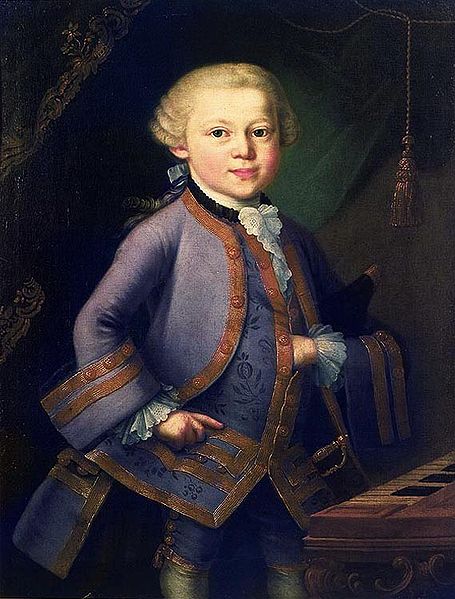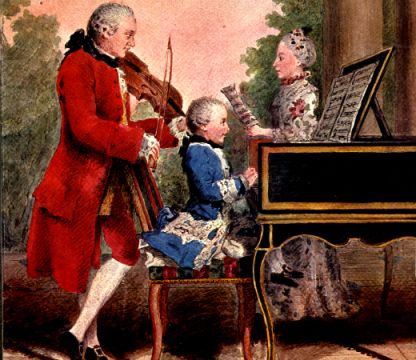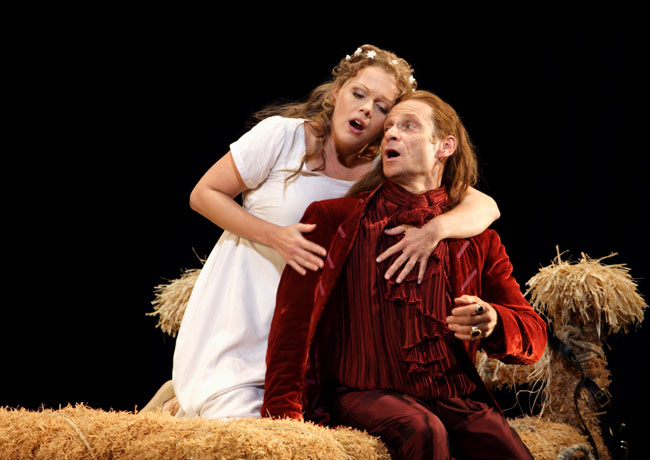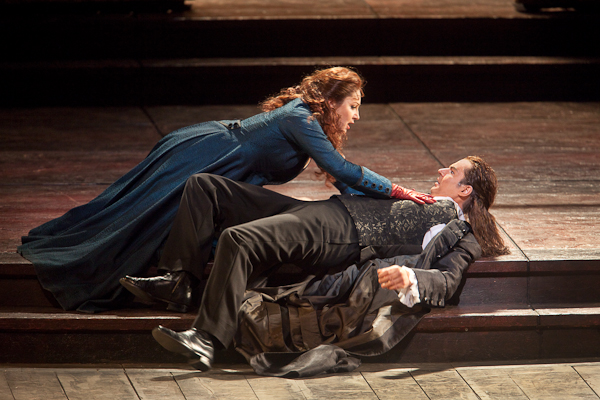It cannot be denied that the verbal arts, the drama, the novel and a great part of poetry have always fed on conflict, and that they have reached their greatest heights when the conflict was unresolvable except by a tragic end. How could a Shakespeare or a Tolstoy display their supreme talents in a world in which their is no injustice? Injustice acting as a counter weight in a potential world that marked by an absence of gravity. Even the humorists and comics would find themselves handicapped in a world in which nothing is out of place.
The dilemma is keenly felt and might be the strongest reason for the hostility of many artists to the future. There may be no solution. If injustice is abolished than also abolished with it will be the great art which is based on injustice, inequality, on blood and on violent death. This a ”masculine” type of art exemplified by representatives like Ernest Hemingway and Jack London, for whom the bells will cease to toll; an aesthetic of death on a long sejourn; an infinite sabbatical.
What would be retained would be art of the feminine type such as the sensuous and sensitive writers, whether male or female. However, one great conflict will always remain and that is the conflict between people’s nature and civilization.August Strindberg expressed this malaise with self-pitying and neurotic moanings within what he termed an unnatural selection ”But as a matter of fact, a man like Strindberg, propelled by an unbridled imagination, alert with romantic tendencies, nervously overstrung, kept constantly under a strain by his morbidly sensitive temperament,–and whose brain is consequently a seething chaos of conflicting ideas, is never put to the necessity of changing his mind; his mind keeps changing itself…..In the preface to Utopias he had referred to himself as “a convinced socialist, like all sensible people”; whereas now he writes: “Idealism and Socialism are two maladies born of laziness.” Having thus scientifically diagnosed the disease and prescribed the one true specific for it, namely–how simple!–the total abolition of the industries, he resumes the preaching of Rousseauism in its simon-pure form, orders every man to be his maid-of-all-work and jack-of-all-trades, puts the world on a vegetarian diet, and then wonders why the socialists denounce and revile him as a turncoat and an apostate.”
Perhaps the great artists of the future will be able to sublimate their obscure and dark fears and invent a new catharsis, one which will reconcile people with a destiny and fate to be happy. it would be an art of maturity, which will make the art of the Greek tragedians and of Shakespeare appear to be the writings of gifted adolescents. Wishful thinking? Immanuel Kant wrote that ”in an Arcady all talent would be nipped in the bud,” and his corrosive wisdom has found a strong echo for 250 years. Yet, Kant had a contemporary who gave the lie to it.
Wolfgang Amadeus Mozart was a creator fit to live in Arcady. He had a short, hard and ultimately tragic life, but his work probably owes little to his sufferings, and most everything to his innate rich and happy nature. There have been precious few of these blessed angels in the history of art and culture compared with the great number of tormented creators such as Beethoven, Michelangelo, Dostoevsky, Flaubert and legions more. This preponderance of the anguished had led to rejections of the portrait of Mozart as a happy child genius as written by Eduard Morike. The efforts to make a neurotic of Mozart seen extremely overdone. He likely would have reached as great heights without a pedantic, exacting, stage mothering father, the humiliations of the unspeakable arch-bishop and without the almost constant worry of debts.
Mozart was a forerunner of the ”Mozartian”, a creator whose art does not feed and live on conflict and who creates for joy and out of joy. It is difficult to imagine a Mozart born and bred in a society devoted to what William James called ”the gospel of work”. Add to this the Bitch Goddess Success. A world of Mozarts can only take shape as when Zerlina sings in ”Don Giovanni”, ”the heart jumps in your bosom with joy”, nel seno vi bulica il core.”
Heirich Heine said, ”music begins where words fail”. What is so fascinating about Mozart, particularly his later works, is that the Speakable and the Unspeakable manage to get along so well together; that melancholy and laughter and life and death can coexist in musical timespace. This chiaroscurto mixture, with its beautifully ambiguous effects, is one of Mozart’s unique achievements. Is Don Giovanni an opera buffa or an opera seria? Cleverly, the libretto evades the issue by calling itself a ”cheerful drama”, a dramma giocoso. The later romantics tried for something approximating this, but they never appeared to discover the secret of his alloy. it was not sufficient merely to have saints and sinners on the same stage without a syntheses and interplay. Mozart had a penchant for self contradition, but had the genius to resolve it.
”In reality every child is to a certain extent a genius and every genius to a certain extent a child” said Arthur Schopenhauer. His example of course was Mozart. Schopenhauer concluded that a genius, as opposed to a mere man of talent, has to look at the world through childlike eyes as something alien and strange, like a stage play seen from a distance; a genius ought not to be involved in the everyday affairs of this world. Mozart was more man than most, and far more mature as as an artist. Only a man who has come to grips with the real world could have written a work like ”Don Gio
i”, with such richness of experience and insight that are reflected on every page.Consider Don Giovanni. The opera, written in 1787, has been like a beacon that always illuminates some new aspect of the intellectual landscape. It has served musicians as a constant point of reference and provided the literati with endless grist for their mill. Everyne it seems, lays a claim to a piece of Mozart’s soul and at the same time exacting their piece of flesh.He has been appropriated as a ”ready made” pressed into service as the need arises. Many have claimed, such as E.T.A. Hoffman that this music marked the beginning of the romantic movement. Psychoanalysts like Otto Rank called it a great Oedipal drama corrsponding to the psychology of psychopaths: ” No psychologist has devoted more study to Don Juan than Otto Rank, one of Freud’s followers, and his is representative of the psychoanalytic view of Don Juan. He states that “on the basis of psychoanalytic theory, we are prepared to derive such forces of overwhelming guilt and punishment–connected with strongly sexual fantasies–from the Oedipus complex. Clearly the endless series [of seduced women] along with the ‘injured third party’ characteristics of the Don Juan type appear to confirm this analytical interpretation: that the many women whom he must always replace anew represent to him the one irreplaceable mother; and that the rivals and adversaries whom he deceives, defrauds, struggles against, and finally even kills represent the one unconquerable mortal enemy, the father.” ( Gordon Banks )
This is a far cry from what Karl Barth, the Swiss Protestant theologian, heard in Mozart’s music. Were he a Catholic, Barth said, he would propose Mozart for sainthood, because he was so obviously in touch with the angels. ”He bowed before an art in which “the laugh is never without tears, tears are never unrelieved by laughter.” He honored Mozart who, though Roman Catholic and yet a Freemason, was utterly free of all institutional deformations, whether ecclesiastical or political. He confessed the reality and the peace he finds in an art which embraces nature, man and God, which is as true to life as it is to death.”
Andre Gide, on the other hand used the same music to bolster his own atheist position. Mozart’s ”tranquilite satisfaite, souriante et reposee”, he said places him among the great pagan, anti-Christian spirits, in opposition to the Christian anguish and discontent of a Michelangelo, a Beethoven or a Dante.André Gide: “Of all musicians Mozart is the one from whom our epoch has taken us farthest away; he speaks only in a whisper, and the public has ceased to hear anything but shouts.”








 COMMENTS
COMMENTS